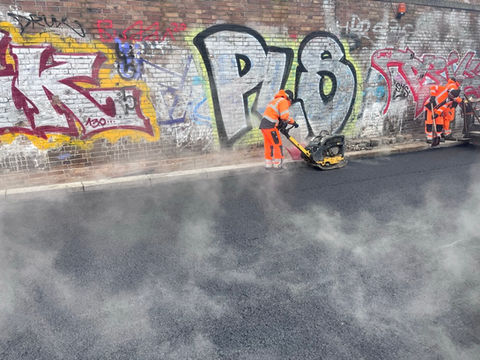top of page
tomorrows
construction
materials
building new ways

0
Projects
0
CO2 saved
0
Countries
0
Plastic recycled
0
road built
Innovation
EcoFlakes, the cost-effective and environmentally friendly solution for polymer modification at the mixing plant.
Innovation
Ecology & Economy
EcoFlakes are a polymer modification for asphalt that replaces virgin polymers and reduces the use of bitumen. They lower CO2 emissions and material costs for every ton of asphalt produced.
Application & Performance
EcoFlakes strengthen asphalt against rutting, cracking, and ageing. They can be used in all asphalt layers, making them suitable for a wide range of applications.
Production & Origin
EcoFlakes are made from recycled post-consumer plastics. With the help of modern sorting and processing methods, we combine the recycling and road construction industries in a real cycle.
unlimited storage. flexible usage.
References
ReferenzenAnker
References
Our Mission
Sustainable innovation for a better future
ecopals turns the waste industry into a source of building materials
Presse
Press
Team
The ecoPals

Kontakt
Contact us!
General Inquiries
Brandenburgische Str. 39
10707 Berlin
bottom of page
































